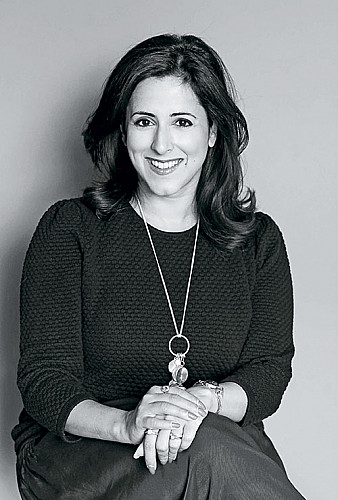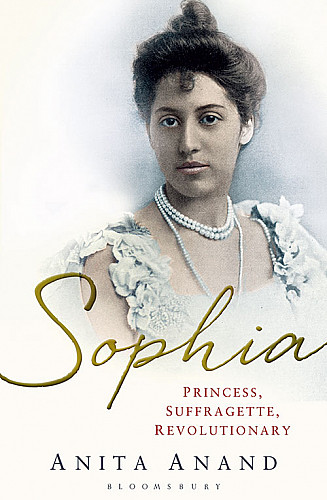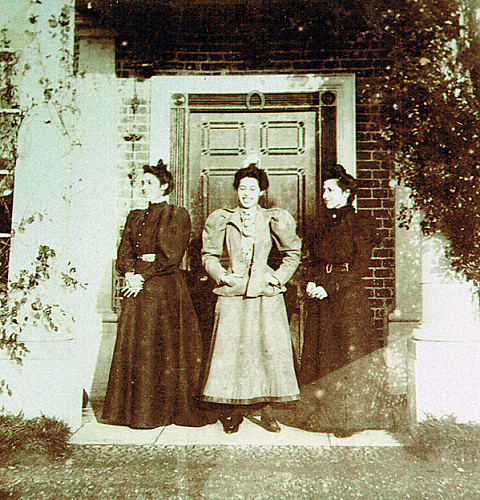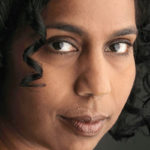London’s Creative Divas: Anita Anand
Anita Anand’s captivating and informative book Sophia: Princess, Suffragette Revolutionary, makes for compelling reading about the life of Indian royals during the British Raj, and revolves around her protagonist Sophia, daughter of Maharaja Duleep Singh. Her father was heir to the Kingdom of Sikhs, a region that stretched from the lush Kashmir valley to the Khyber Pass. It was an irresistible territory for the British Empire, which was eager to control all the richness of the Indian subcontinent, and take possession of the Kohinoor Diamond.
When exiled to England, Duleep Singh transformed his estate, Elvedeen in Suffolk, into a Mughal palace. Princess Sophia was the god-daughter of Queen Victoria and was raised as a genteel aristocratic Englishwoman who went to church as a Catholic and resided in Hampton Court, while marking the society pages. But after she defied the British government and secretly travelled to India, she returned a revolutionary and spent her life passionately battling inequality and injustice. Princess Sophia championed the causes of Indian Independence, the fate of the Lascars, and the welfare of the Indian soldiers in the First World War, and was paramount in leading the fight for female suffrage.
What inspired you to write Sophia Princess, Suffragette Revolutionary?
I am a political journalist by trade, and have considered myself a feminist for even longer, so most people assume I was on the lookout for a subject that would satisfy both those predilections. Truth is, I never intended to write a book — Sophia found me and forced me to write about her. I was on maternity leave in 2010 and was reading a lot in the short windows between my son’s sleeps. One morning, a local magazine landed on my mat. As I turned the pages I became transfixed by a single image, of a brown-skinned woman dressed as an Edwardian lady, selling copies of a militant suffragette newspaper outside ‘her home at Hampton Court Palace’. She looked Indian.
I was drawn to this figure — fighting for the rights of British women to vote. My curiosity was further stoked when I discovered that her surname was Singh, my name too by marriage. I tugged on a thread and a landslide of a story came down on me — a tale of the fall of empires and the rise of women. Princess Sophia Duleep Singh became my almost constant companion for the next four-and-a-half-years. My relationship with her is almost as old as my son.
What aspect of the tale captivated you the most?
Sophia’s selfless courage — she was a woman who really didn’t need to do what she did. Being Queen Victoria’s god-daughter afforded her a life of comfort and favour. Yet she chose to jeopardise that, her liberty and her very life to the cause of votes for women. And though her family had every reason to resent the British for what they had done to her father, and her sister Bamba did hate them all with a passion, Sophia always saw the bigger picture. She saw British women suffering and made their cause her own. She was in the inner sanctum of the suffragettes with some of the most vilified women in Britain — most notably Emmeline Pankhurst. She was a thorn in Winston Churchill’s side.
How did you succeed in putting her tale together?
That the Duleep Singh line died with Sophia’s generation did not help, nor did the fact that she alone took on the mantle of being the family archivist. Sophia never thought of preserving her own correspondence. A few of her letters have turned up in disparate private collections and Sophia’s diary survives which let me hear her ‘voice’. Three people who knew her extremely well were still alive while I wrote the book and spoke to me. That was invaluable because it became a real struggle to uncover her through official documents.
Why were her efforts not celebrated by suffragettes?
The suffragettes of the day were deeply fond of the princess. However she suffers from a more general problem with historical longevity — the women often get swept away. When I give talks about Sophia, I often ask how many suffragettes people can name. They always struggle after Emmeline Pankhurst and perhaps Emily Wilding Davison. Also, Sophia fades in the suffragette memory, for she was never sent to prison and, therefore, was denied her chance to go on a hunger strike and take her place in the pantheon of WSPU (Women’s Social and Political Union) giants.
How has your book been received in india and abroad?
I have been truly overwhelmed by the warm response. The critics both in India and the UK have been largely enthusiastic and kind. Her story seems to resonate in both the countries. In Britain, we are struggling with voter apathy — with an election round the corner. So, a story of a woman, who fought so hard to give women the vote, has gained great traction. It reminds people how till recently, women had no say at the ballot box at all.
I also had the great privilege of ‘bringing Sophia home’ when I took her to the Zee Jaipur Literature Festival and then to Kolkata early this year. Young women in particular have been moved by the story. It speaks to them on many levels — I suppose female empowerment, struggle and justice are particularly relevant in this day and age — some of the headlines I read in Indian papers truly depress me. Punjabis too have been very kind. One Sikh lady came up to me at a book festival in Bath the other day and said, “Thanks for giving back to us what the British took away”. I will admit I did tear up privately after that.
Would you like to see your book made into a film?
Of course! My whole aim has been to put Sophia back in her rightful place.
What types of books do you read? What’s next for you?
I love reading biographies — I’m about to read Zareer Masani’s Macaulay: Britain’s Liberal Imperialist. But I am also enjoying Brigid Keenan’s hilarious memoir Diplomatic Baggage. And as for ‘what’s next?’, I am a journalist rather than a historian — but while researching Sophia I did come across something interesting…will it become something? It is still a little too early to say anything about it.
Related posts from Verve:
Verve Trending
Sorry. No data so far.
us on Facebook to stay updated with the latest trends








